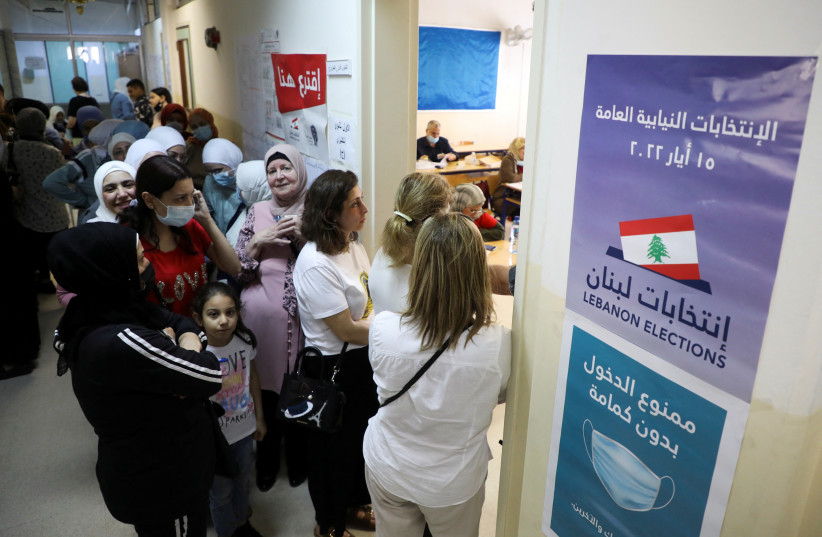The Lebanese Forces party has won at least 20 seats in Lebanon's parliamentary election, the head of its press office said early on Monday, in a significant win for the Christian faction that is vehemently opposed to Shi'ite movement Hezbollah.
Hezbollah and its allies are likely to lose their majority in the Lebanese parliament, three sources allied to the group said, a result that would mark a major blow to the heavily armed faction and reflect anger with ruling parties.
While results from Sunday's election have yet to be finalized, the senior sources said it was improbable Hezbollah and its allies would secure more than 64 of parliament's 128 seats, citing preliminary results. An official at Hezbollah's media office could not immediately be reached for comment.
Supporters of Hezbollah and the Christian Lebanese Forces clashed and polling monitors were threatened as Lebanese citizens voted in the first parliamentary elections since the economic crisis in the country began.
As of 6:30 p.m., shortly before polls closed, 37.5% of eligible voters had voted throughout Lebanon.

A number of injuries were reported after supporters of Hezbollah and supporters of the Lebanese Forces clashed in Zahle, according to Lebanese reports. The army intervened and returned the peace, according to Lebanon's National News Agency.
Clashes between Hezbollah and Lebanese Forces supporters broke out in a number of other locations around the country as well.
Monitors from the Lebanese Association for Democratic Elections (LADE) reported that its monitors were threatened by members of Hezbollah and its ally the Amal Movement multiple times at multiple polling locations on Sunday.
At a polling center in the Beqaa Valley, representatives of the "Hope and Loyalty" list forced out representatives of the Lebanese Forces.
The Lebanese Christian Forces claimed that representatives of lists allied with the party were attacked by Hezbollah supporters and forcibly removed from polling stations in multiple locations in Jbeil and Baalbek-Hermel.
In Beirut, a crowd of Hezbollah supporters was seen loudly chanting slogans in front of a polling station, with LADE warning that this affected the turnout of voters at the station.
"Voting is the duty of every citizen," said President Michel Aoun as he cast his vote on Sunday. "A citizen cannot be impartial in a major issue that is essential in choosing the system of government. Every four years the citizen experiences a stage during which he can distinguish between who accomplished among the deputies, and who did not accomplish anything. We wish everyone, especially family members who have not yet voted, please go to the polls."
A person was reportedly arrested after verbally assaulting Aoun at the polling station.
Prime Minister Najib Mikati voted on Sunday morning with his family, saying "The state, with all its organs, is mobilized to achieve this democratic election, and God willing, things are going well."
Mikati added that the voter turnout in the morning was good and called on Lebanese citizens to "choose the best and whoever they see fit."
Hezbollah official Sheikh Naim Qassem called on the Lebanese people to vote, saying "Let people vote freely and with conviction, and from now on we say we accept the results, no matter what and how they are distributed, and we extend our hands to everyone." Nasrallah’s son and father both voted on Sunday.
Hezbollah and its allies won a majority of 71 when Lebanon last voted in 2018. The sources spoke on the condition of anonymity because they were not authorized to speak on behalf of Hezbollah and its allies.
The country has been rocked by an economic meltdown that the World Bank has blamed on the ruling class, and the devastating Beirut port blast of 2020. Analysts say public outrage over both issues could propel some reform-minded candidates into parliament.
But expectations for a big shake-up are slim in Lebanon's sectarian system, which divides parliament's seats among 11 religious groups and is skewed in favor of established parties.
The last vote in 2018 saw the heavily armed Shi'ite movement Hezbollah and its allies - including President Michel Aoun's Free Patriotic Movement (FPM), a Christian party - win 71 out of parliament's 128 seats.
